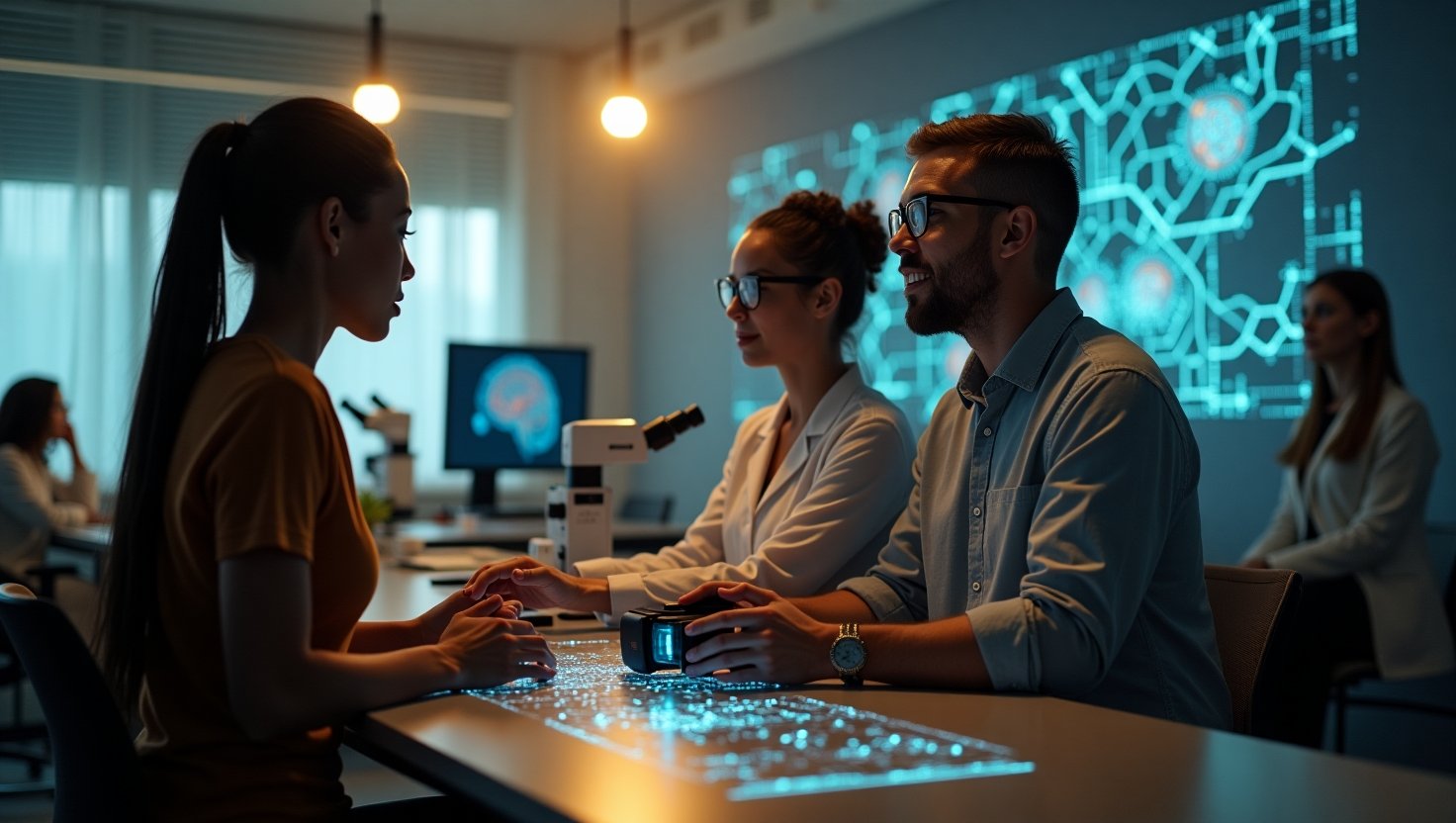The Intersection of AI and Neuroscience: Unraveling the Human Mind
Introduction
In recent years, the convergence of artificial intelligence (AI) and neuroscience has opened up new vistas in our understanding of the human mind. These developments are more than just academic exercises; they pave the way for groundbreaking discoveries in behavior prediction and cognitive science. By leveraging advanced neural networks, researchers can simulate and analyze complex mental processes, helping decode the intricate mesh of human cognition. This fusion of AI and neuroscience promises to transform fields like psychological experiments and behavior prediction, providing deeper insights into how our minds work and interact with the world.
Background
At the heart of this collaboration between AI and neuroscience is the use of neural networks. These are computational models that mimic the architecture of the human brain to process information. While neural networks have been a mainstay in AI since their inception, their similarity to human neural processes — yet crucial differences — make them an invaluable tool for cognitive science.
Neuroscience, a field that has long strived to understand the human brain’s workings, now finds a potent ally in AI. Historically rooted in disciplines like psychology, the field has benefited from these cross-disciplinary advances, which help refine theories and models of cognitive functions. The most compelling aspect lies in the parallel growth of AI capabilities and our understanding of brain function, providing a fresh context for studying how we think, learn, and behave.
The Rise of AI in Neuroscience
The recent surge in using AI to aid neuroscience research is not without reason. New technologies, such as Centaur, are being employed extensively in psychological experiments to map the unknown territories of the human mind. These AI models offer a level of prediction and analysis previously unattainable, suggesting that machines could discern patterns of behavior in ways humans have only speculated about.
Centaur, for instance, leverages a network with a billion times more parameters than conventional psychological models to predict behavior far more accurately (source: TechnologyReview). This capacity suggests a paradigm shift wherein machines don’t only assist in cognitive studies but enhance their breadth and depth.
Insights from Recent Research
Recent studies have shed light on the tangible benefits and limitations of using AI models in neuroscience. The differences between neural networks and human brains become evident upon close examination. For example, Olivia Guest likens Centaur to a calculator, stating, \”I don’t know what you would learn about human addition by studying a calculator\” (source). This analogy captures the current boundary of AI capabilities: excellent at simulating outcomes yet debated in its role in providing genuine insight into human cognition.
Experts like Meta and Marcelo Mattar have highlighted how AI aids in psychological studies by sourcing vast amounts of data to model behavior patterns. However, despite these advancements, the question remains: can AI truly replicate the nuanced and intricate thought processes inherent in human cognition?
Future Forecast: AI and Neuroscience
Looking ahead, the relationship between AI and neuroscience seems poised for continuous evolution. The potential advancements in behavior prediction and cognitive science applications appear vast. As AI models become more sophisticated, they may one day provide profound insights into the enigmas of human cognition. However, questions persist concerning the scope of AI’s role in psychological experiments and its capacity to truly decipher the human mind’s complexities.
The future might witness AI models not just predicting behavior but also providing meaningful interpretations of the cognitive processes, transforming our understanding of human psychology significantly. These efforts could ultimately redefine how we perceive mental health, leading to more personalized and effective therapeutic interventions.
Call to Action
As AI and neuroscience continue to intertwine, staying informed about the latest developments is crucial for anyone interested in the future of psychology. Engage in discussions, challenge ideas, and explore the implications of these technologies. This dialogue will not only pave the way for new questions but might also hold the key to unlocking further mysteries of the human mind.
Explore the comprehensive discussion about AI’s role in neuroscience and behavioral predictions further in our detailed article here. Share your thoughts on this transformative journey towards understanding human cognition.

